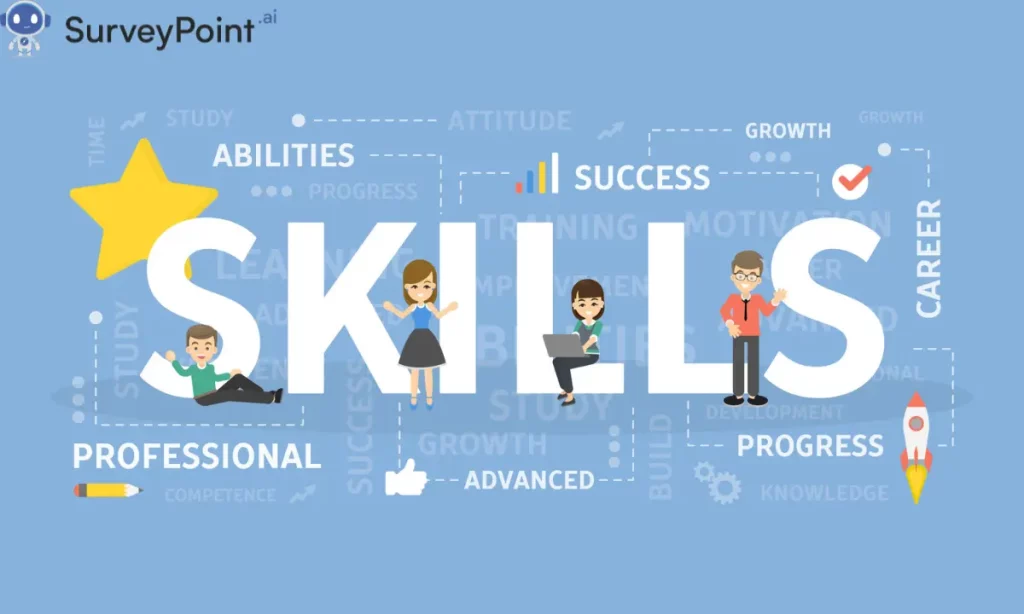
In today’s fast-paced world, the importance of skill development cannot be overstated. Whether you’re a student, a professional, or someone looking to enhance their employability, honing new skills is key to staying relevant in the job market. In this comprehensive guide, we’ll explore what skill development entails, the numerous benefits it offers, initiatives by the Indian government in this regard, how it leads to better job roles, and the outcomes it brings to individuals and society.
Understanding Skill Development: Skill development refers to the process of acquiring or improving abilities, knowledge, and expertise that are relevant to a particular job, industry, or field. It involves continuous learning, training, and practice to stay updated with evolving technologies, trends, and requirements.
Benefits of Skill Development:
- Enhanced Employability: By acquiring new skills or upgrading existing ones, individuals become more attractive to employers, increasing their chances of securing employment or advancing in their careers.
- Career Advancement: Skill development opens doors to better job opportunities, promotions, and higher salaries as individuals demonstrate their competence and value to employers.
- Adaptability: In today’s dynamic job market, being adaptable and versatile is crucial. Skill development enables individuals to adapt to changing job roles, industries, or market demands, ensuring long-term employability.
- Personal Growth: Beyond professional benefits, skill development fosters personal growth and fulfillment. Learning new skills boosts confidence, creativity, and self-esteem, empowering individuals to pursue their passions and aspirations.
- Contribution to Society: A skilled workforce drives economic growth and innovation, benefiting society as a whole. By investing in skill development, governments, organizations, and individuals contribute to building a prosperous and sustainable future.
Initiatives by the Indian Government for Skill Development:
- Pradhan Mantri Kaushal Vikas Yojana (PMKVY): Launched in 2015, PMKVY aims to provide skill training to over 10 million youth across India by 2020, focusing on key sectors such as manufacturing, construction, healthcare, and tourism.
- Skill India Mission: This flagship program aims to train 400 million people in various skills by 2022, aligning with the government’s vision of making India the skill capital of the world.
- National Skill Development Corporation (NSDC): Established to facilitate skill development initiatives, NSDC partners with private sector companies, training providers, and industry bodies to design and implement skill training programs.
Skill Development and Better Job Roles:
Skill development is closely linked to better job roles and career prospects. As individuals acquire new skills or upgrade existing ones, they become eligible for higher-level positions, specialized roles, or leadership positions within organizations. Employers value skilled professionals who can contribute to their business growth, innovation, and competitiveness. Additionally, skill development enables individuals to transition into emerging industries or sectors with high demand for specialized skills, opening up new avenues for career advancement and success.
Skill Development Outcomes
- Employment Generation: Skill development programs create job opportunities for millions of individuals, particularly in sectors with high demand for skilled labor.
- Reduced Unemployment: By equipping individuals with market-relevant skills, skill development initiatives help reduce unemployment rates and bridge the gap between job seekers and employers.
- Economic Growth: A skilled workforce fuels economic growth by increasing productivity, driving innovation, and attracting investments in key sectors.
- Poverty Alleviation: Skill development empowers individuals from marginalized or disadvantaged backgrounds to break the cycle of poverty, improve their standard of living, and become financially independent.
- Social Empowerment: Skill development promotes social inclusion and empowerment by providing equal opportunities for all, regardless of gender, age, or socioeconomic status.
Conclusion:
In conclusion, skill development is a catalyst for personal growth, professional success, and societal progress. By investing in skills training and education, individuals can unlock a world of opportunities, enhance their employability, and contribute to the overall development of society. With initiatives by the Indian government and concerted efforts from stakeholders across sectors, skill development has the power to transform lives, drive economic prosperity, and build a brighter future for generations to come. So, seize the opportunity to invest in your skills, embark on a journey of lifelong learning, and unleash your full potential in the dynamic world of work. For more information checkout – surveypoint.ai

